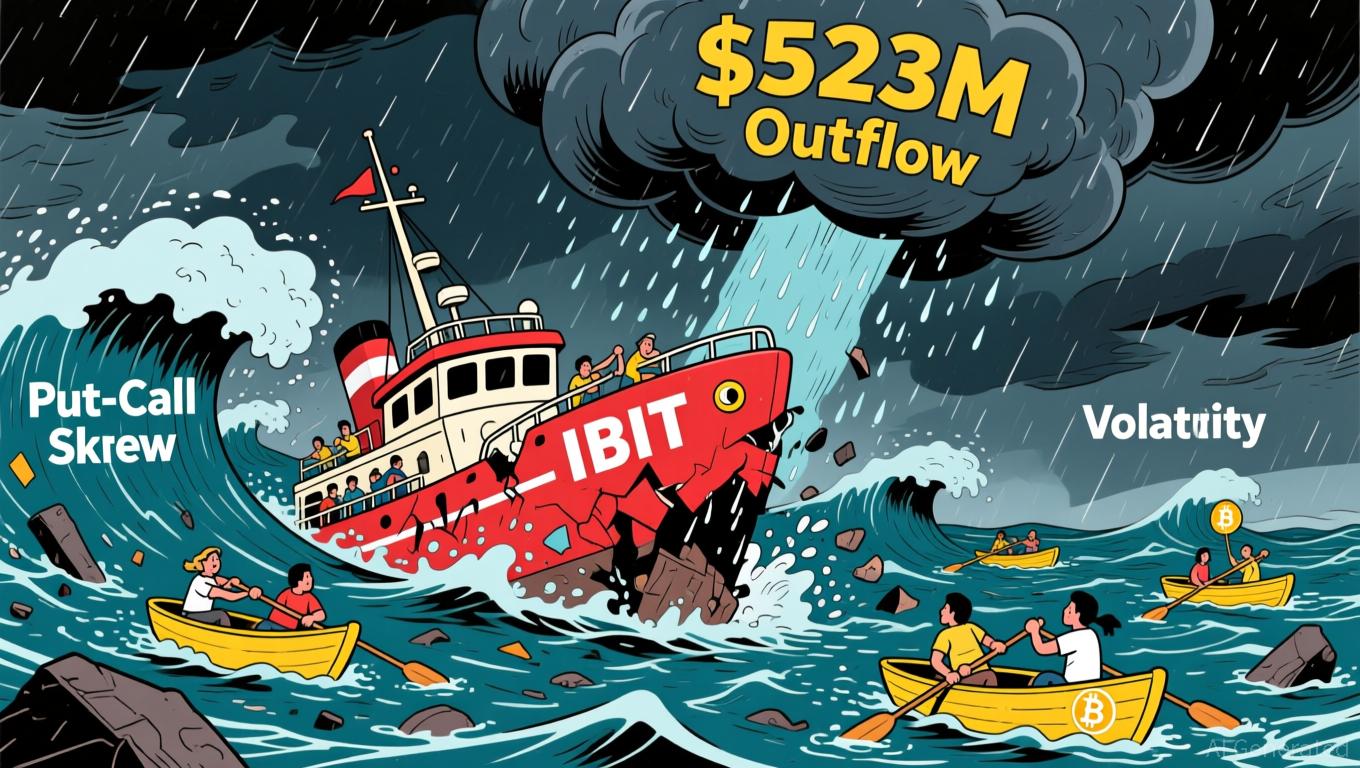Vitalik Buterin's Latest ZK Update and Its Influence on the Cryptocurrency Landscape
- Vitalik Buterin's removal of Ethereum's modexp precompile optimizes ZK scalability, prioritizing long-term throughput over short-term gas efficiency. - Integrating ZK proofs with MPC and FHE enhances DeFi privacy, enabling secure voting and private transactions while maintaining regulatory compliance. - Institutional adoption of ZK infrastructure accelerates, with projects like Succinct Labs securing $55M to build enterprise-grade solutions for cross-chain interoperability. - ZK rollups like StarkNet and
Technical Innovations: Enhancing ZK Scalability
One of Buterin’s main priorities for 2025 has been eliminating Ethereum’s modexp precompile, an older function used for modular exponentiation.
Buterin’s ambitions go beyond single improvements. He has advocated for combining ZK proofs with other cryptographic methods such as multi-party computation (MPC), fully homomorphic encryption (FHE), and trusted execution environments (TEE).
Strategic Impacts on DeFi: Privacy and Scalability
Removing the modexp precompile has already driven progress in ZK-based rollups. For example,
Buterin’s focus on privacy is equally significant. By integrating ZK proofs with MPC and FHE, DeFi platforms can deliver provable privacy without losing transparency. This is especially important for institutional participants who need strong privacy protections to meet regulatory demands.
Investment Prospects and Challenges
The pivot toward ZK technology is creating attractive investment opportunities. Native tokens from ZK rollups, including
Nevertheless, investors should proceed with caution.
Conclusion
Vitalik Buterin’s push for ZK technology marks a decisive shift toward scalable and privacy-focused DeFi infrastructure. While direct announcements for 2025 remain limited, his previous efforts—such as removing the modexp precompile and layering cryptographic solutions—set a clear direction for Ethereum’s future. For investors, the increasing institutional embrace of ZK-based assets and rollups points to a maturing sector, though navigating technical and regulatory hurdles will require patience. As the crypto landscape adopts these breakthroughs, ZK-driven projects are expected to lead the next wave of DeFi expansion.
Disclaimer: The content of this article solely reflects the author's opinion and does not represent the platform in any capacity. This article is not intended to serve as a reference for making investment decisions.
You may also like
Bitcoin News Update: Japan's Bond Turmoil Triggers Worldwide Crypto Sell-Off Amid Yen Carry Trade Reversal
- Japan's $135.4B stimulus package triggered a 3.41% surge in 30-year bond yields, destabilizing the $20T yen carry trade and sparking global crypto/stock selloffs. - Rising yields threaten Japan's 230% GDP debt load with higher servicing costs, creating a "debt death spiral" risk as BOJ hesitates to tighten policy. - Forced deleveraging by financial institutions intensified Bitcoin's 26% drop, with Ethereum/XRP/Solana also falling 3-5.6% amid margin calls and capital repatriation. - Upcoming 40-year bond

Bitcoin News Today: Bitcoin ETFs See $523M Outflow as Investors Weigh Fear Against Long-Term Strategies
- BlackRock's IBIT ETF recorded a $1.26B net outflow in Nov 2025, its largest redemption since 2024 launch. - Bitcoin price fell 16% to $52, triggering $2.59B outflows across 11 spot ETFs as bearish options demand surged. - Put-call skew hit 3.1% (7-month high), reflecting heightened pessimism and capitulation pressures in Bitcoin's price action. - Gold ETFs gained $289M as investors sought safe havens, contrasting with $1B inflows to tech/healthcare sector funds. - Year-to-date Bitcoin ETF inflows ($27.4B

YFI Drops 1.7% After Subpar Weekly Results as Edgewater Showcases AI-Powered Wi-Fi at Canada’s Leading Semiconductor Conference
- Edgewater Wireless will showcase AI-powered Wi-Fi 8 solutions at Canada’s premier semiconductor symposium in November 2025. - The company’s CEO will highlight ultra-reliable wireless roadmaps and a $2.4M commercialization initiative supported by $921K in government grants. - Its patented Spectrum Slicing technology claims 10x performance gains and 50% latency reduction, aligning with Canada’s semiconductor self-sufficiency goals. - Despite a 11.85% monthly stock decline, Edgewater positions itself at the

Ethereum Updates Today: Ethereum Transforms into Digital Bonds, Soaring Above $3,000 Driven by Institutional Interest
- Ethereum surged past $3,000 in late 2025 driven by institutional demand, ETF approvals, and technical upgrades like the Fusaka upgrade. - BlackRock's staked Ethereum ETF attracted $13.1B inflows since 2024, reclassifying staked ETH as "digital bonds" for institutional investors. - Over 69 corporations now hold 4.1M ETH in treasuries, but ETF outflows highlight ongoing market differentiation from Bitcoin . - Fusaka's focus on layer-1 scalability aims to redirect economic activity to Ethereum's base layer